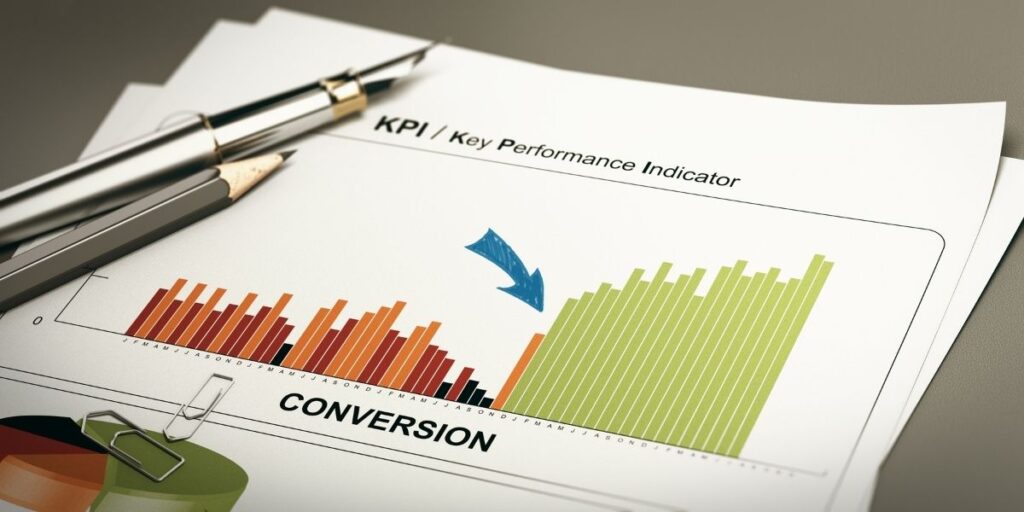In 2024, the landscape of lead generation continues to evolve rapidly. As businesses strive to grow and maintain a competitive edge, generating quality leads remains critical to any successful marketing strategy. This guide aims to provide you with the latest techniques, tools, and insights needed to generate leads effectively. By the end of this article, you’ll be equipped with actionable strategies to attract and convert potential customers. Did you know that businesses that prioritize lead generation see a 133% increase in revenue compared to those that don’t? This is a clear testament to the potential for growth and success that effective lead-generation strategies can bring. Let’s delve into the complexities of lead generation and uncover how to harness these strategies for your business’s success.
Understanding Lead Generation

Definition and Significance
Lead generation attracts and converts strangers and possibilities into individuals interested in your company’s product or service. It involves creating awareness, generating interest, and promoting likely clients via the sales funnel until they are ready to purchase. This process is crucial because it establishes a sales foundation, helps build relationships with potential customers, and drives revenue growth. Understanding the types of leads and their journey through the sales funnel is critical to feeling informed and empowered in your lead generation efforts.
Types of Leads
- Cold Leads: These individuals must be more interested in your product or service. They may need to be more familiar with your brand or have had minimal interaction with your marketing efforts. Cold leads require more nurturing to move them through the sales funnel.
- Warm Leads: Prospects who have shown interest, such as visiting your website, downloading a resource, or engaging with your content. They know your brand and may have expressed interest in learning more.
- Hot Leads: Highly interested individuals who are ready to make a purchase. They have intended to buy and are often just a step away from becoming customers.
The Lead Generation Funnel Explained
The steps a potential consumer takes from awareness to conversion are illustrated visually in the lead generation funnel:
- Awareness: At this point, potential clients discover your company through various marketing platforms, including social media, search engines, and advertising. The goal is to capture their attention and introduce them to your brand.
- Consideration: During the consideration phase, prospects evaluate your product or service against competitors. They engage with your content, attend webinars, and seek out reviews and testimonials. The main goals of this stage are to establish trust and give prospects helpful information that answers their wants and pain spots.
- Conversion: The final stage where prospects decide to purchase. They have gathered enough information, interact with your sales team, and are convinced that your offering is the best solution for their needs.
Lead nurturing is a game-changer. According to Forrester Research, companies that excel at lead nurturing generate 50% more sales-ready leads at 33% lower cost per lead. This underscores the importance of a well-structured lead generation funnel in driving business growth.
Get Your Custom Lead Generation Plan With Expert
Modern Lead Generation Techniques
Content Marketing

Instructional and engaging content must be produced to attract and retain potential clients’ attention. Various kinds of material, including infographics, videos, and blogs, can be utilized to manage the needs and interests of your target audience. High-quality content educates, informs, and builds trust and authority in your industry.
HubSpot, a leader in content marketing, has seen significant growth in lead generation through its comprehensive blog and resource center. By providing valuable insights and tools for marketers, HubSpot attracts a steady stream of leads who trust their expertise and are more likely to convert into customers.
Social Media Marketing

Social media sites such as Instagram, LinkedIn, and Facebook are excellent resources for lead generation. Companies can use these channels to interact with their audience, provide insightful content, and launch focused advertising campaigns. Social media makes it possible to communicate directly with prospective customers, building trust and raising brand awareness. According to a State of B2B Marketing Report from Wpromote, 89% of B2B marketers use LinkedIn for lead generation, and 62% say it generates over two times more than the next-highest social channel.
Email Marketing

Creating compelling email campaigns and assembling a high-quality list can significantly increase lead generation. Segmented and customized emails have higher open and click-through rates, which boost conversions. Email marketing allows businesses to nurture prospects by directly sending offers and relevant content to their inbox.
Email marketing has an average ROI of $42 for every $1 spent, making it one of the most cost-effective lead-generation strategies. This emphasizes the importance of creating and sticking to a sound email marketing plan.
Search Engine Marketing (SEM)

SEM, including SEO and PPC, is crucial for increasing visibility and attracting potential leads. SEO optimizes your website to rank higher in organic search results, while PPC describes the paid advertising at the top of SERP. Both strategies drive targeted traffic to your site and can significantly enhance lead-generation efforts. According to Demandsage, Organic searches drive 1000% more traffic than organic social. Organic traffic is essential for any marketer.
Webinars and Virtual Events

Hosting educational webinars and virtual events can position your business as an industry authority and attract quality leads. These events provide value to attendees while allowing you to showcase your expertise and solutions. Webinars and virtual events also offer real-time interaction and engagement opportunities with potential leads.
A personalized digital experience from the point of registration can boost conversion rates by the event’s end, with some finding that it can be up to 59%, which is 10% higher than the industry norm.
Get Your Custom Lead Generation Plan With Expert
Leveraging Technology for Lead Generation
Customer Relationship Management (CRM) Systems

CRMs play a vital role in managing and nurturing leads. They help businesses keep track of interactions, segment leads, and automate follow-ups, ensuring that no lead falls through the cracks. CRMs provide a centralized platform to manage customer data, track sales activities, and measure the effectiveness of lead-generation campaigns.
Marketing Automation Tools

Through the automation of repetitious tasks like email advertising, social media posting, and lead scoring, automation solutions streamline lead generation processes. This enables companies to stay on top of strategic tasks and maintain regular contact with leads.
Email marketing (63%), social media management (50%), and paid ads (40%) are the top areas where marketing automation is currently being utilized to help achieve business objectives.
Artificial Intelligence (AI) and Chatbots

AI and chatbots can enhance lead generation by providing instant responses to inquiries and nurturing leads through personalized interactions. They can also analyze data to identify high-potential leads and predict future behaviors. AI-powered tools can handle many interactions simultaneously, improving efficiency and lead response times.
AI chatbots have been reported to increase the number of high-quality leads by 55%, providing round-the-clock support and personalized interactions.
Strategies for Different Business Sizes

Small Businesses
For small businesses, cost-effective lead generation is crucial. To draw and convert leads, concentrate on natural methods like social media, local SEO, and content marketing. Leveraging community involvement and local partnerships can generate leads without a significant financial investment.
Our benchmark data shows B2C companies have successfully generated leads without offline sources. In June 2023, B2C companies generated 196.5 new leads, over seven times more than B2B companies and over five times the median for all companies.
Medium-Sized Businesses
Medium-sized businesses can balance their budget with more advanced lead-generation strategies. Combining content marketing with PPC advertising and email campaigns can yield significant results. Investing in marketing automation and CRM systems can help manage and nurture leads more effectively.
According to experts, the average e-commerce conversion rate increased by 6.87%, rising from 2.12% to 2.27% between November 2022 and November 2023.
Large Enterprises
Large enterprises have extensive resources to implement sophisticated lead-gene action strategies. They can leverage advanced technologies, comprehensive marketing campaigns, and multi-channel approaches to attract a high volume of leads. AI, data analytics, and personalized marketing can further enhance lead-generation efforts.
87% of marketers admit that company data is their most underutilized asset. Better data segmentation, profiling, and predictive lead scoring can significantly enhance lead generation.
Measuring and Analyzing Lead Generation Success

Key Performance Indicators (KPIs) for Lead Generation
Businesses should track KPIs such as conversion rate, cost per lead, and lead quality to measure the success of lead generation efforts. These metrics provide insights into the effectiveness of different strategies and help identify areas for improvement.
Analyzing Lead Quality
Assessing lead quality is essential for optimizing lead generation efforts. Sales teams can concentrate on high-potential prospects by using techniques like lead scoring, which assists in ranking leads based on the likelihood of them converting. Lead scoring involves assigning points to leads based on their behavior, engagement, and demographic information.
Continuous Improvement
Continuous testing and refinement of lead generation strategies are crucial for long-term success. Regular data analysis and performance-based modifications can result in better outcomes. The best strategies can be found by A/B testing various campaign components, such as ad wording, landing page designs, and email subject lines.
Get Your Custom Lead Generation Plan With Expert
Future Trends in Lead Generation
Personalization

Personalization is becoming increasingly crucial in lead generation. Tailoring marketing messages to individual preferences and behaviors can significantly enhance engagement and conversion rates. Personalization can be used in many marketing contexts, including email campaigns, website content, and product recommendations.
Video Marketing

Video content is becoming increasingly popular and is an effective technique for generating leads. Businesses that use video marketing can engage their audience more effectively and convey complex information in an easily digestible format. Video can be used for product demonstrations, customer testimonials, and educational content.
Interactive Content

Quizzes, polls, and calculators are interactive content that can engage potential leads and offer insight into their requirements and preferences. This type of content encourages social sharing and increases reach, helping businesses attract more leads.
Privacy and Data Security
With increasing concerns about data privacy, businesses must prioritize data protection in their lead generation efforts. Ensuring transparency and compliance with regulations like GDPR and CCPA can build trust with potential leads and protect your business from legal issues.
Conclusion
Lead generation is a dynamic and essential aspect of business growth. Businesses can attract and convert quality leads by understanding the fundamentals, leveraging modern techniques, and staying ahead of industry trends. Whether you’re a small business or a large enterprise, the strategies outlined in this guide can help you achieve your lead generation goals in 2024 and beyond. As the digital landscape continues to evolve, staying informed and adaptable will be vital to sustaining success in lead generation. Embrace these strategies, measure your progress, and continuously refine your approach to drive long-term growth for your business.
For tailored lead generation strategies and expert digital marketing solutions, at SpreadMe Digital, we pride ourselves on being a top lead generation agency that understands the unique needs of our clients. Our dedicated team employs cutting-edge strategies and tools to ensure your business attracts and converts high-quality leads. Let us help you navigate the ever-changing digital landscape and achieve your lead generation goals with our tailored solutions. Visit us at SpreadMe Digital to learn more about how we can support your business growth.
Get a Personalized Lead Generation Quote






